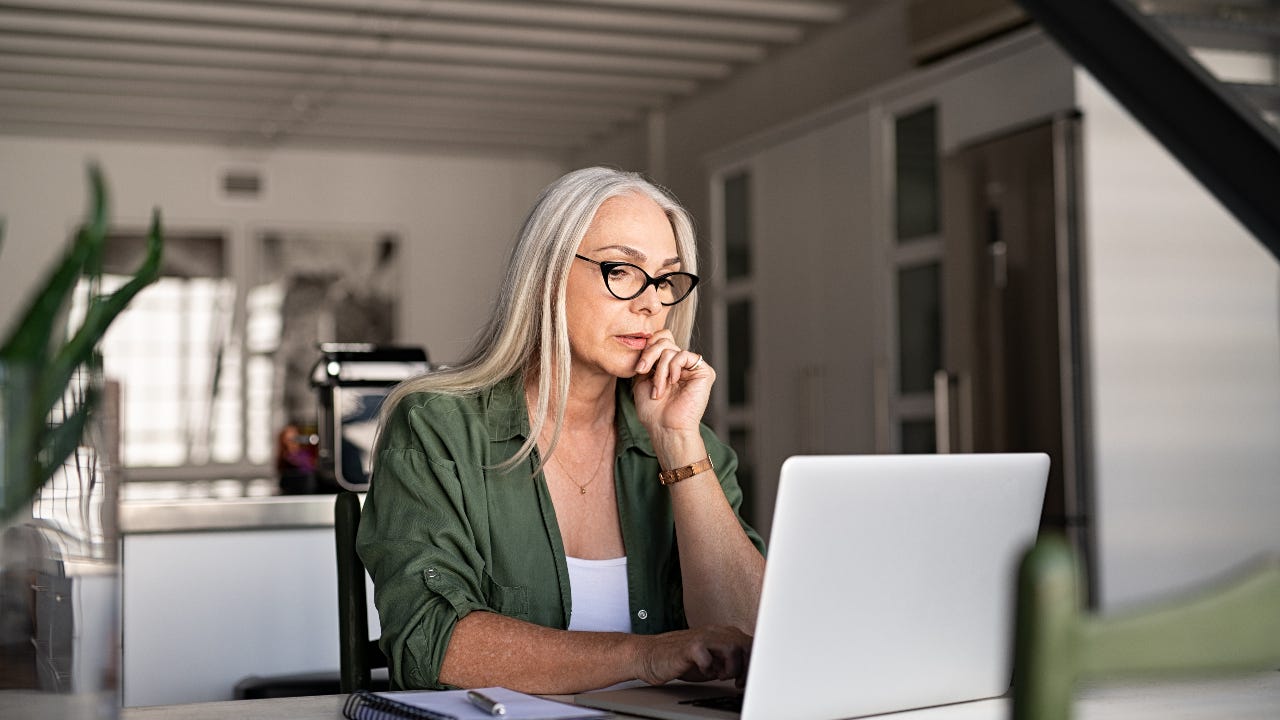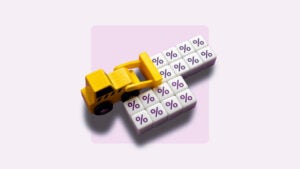Coping with debt when you’re laid off




Key takeaways
- You may have access to a severance package from your former employer and unemployment benefits to help you pay the bills while looking for your next job.
- Your creditors may be willing to offer financial hardship programs to ease your financial burden while you are between jobs.
- Prioritize your debt payments, making the minimum payments on all credit cards so your credit score doesn’t take a major hit while you’re laid off.
If you were recently laid off or are concerned about the possibility of a layoff, you’re not alone. According to data from the U.S. Bureau of Labor Statistics, around 1.8 million Americans were laid off in December 2024. The figure was the same for November, confirming that layoffs are a common part of American business. Recent news stories have also been filled with news about layoffs.
When you’re one of the people laid off, the world feels far from business as usual. A layoff can completely upend your life.
Coping with debt when you’re laid off is especially tricky, particularly when it comes to high-interest credit card debt. Fortunately, there are several tools you can use to manage your debt and protect your credit score while searching for your next job.
Steps to take after being laid off
Take these steps immediately upon being laid off to protect your finances.
Step 1: Apply for unemployment benefits
Apply for unemployment insurance benefits as soon as possible following a layoff. Unemployment insurance helps provide income to eligible workers who have lost their jobs through no fault of their own.
Eligibility requirements and benefit terms vary by state but are generally based on your work history. You’ll need to meet your state’s requirements for claiming benefits, which typically include actively seeking a new job.
Unemployment benefits are intended to be temporary, but they can be a lifeline while you find your next position, helping you meet your financial obligations in the interim.
Step 2: Update your budget
A layoff shifts your budget by changing both income and expenses. You won’t have your wages or salary for a bit, but you might have a severance package from your former employer that can help support you while you find a new job. On the expense side, you might not need to spend as much on transportation or lunches while unemployed. Also important is to see what you can cut temporarily to live on a bare-bones budget until more cash is coming in.
Update your budget to account for the income you get from severance and/or unemployment insurance, as well as your current expenses. Do your best to stick to your temporary budget while looking for your next career opportunity.
Step 3: Contact your creditors
If you’ve just been laid off, contact your creditors to explain the situation and ask if they can make the payments more manageable. Credit card issuers and other lenders may offer hardship programs to temporarily ease your financial burden.
Hardship programs vary widely depending on the institution, your history with the lender and your financial circumstances. If you’re eligible for one, they can make a difference in dealing with debt while laid off. For example, a creditor may lower your interest rate or waive fees for a few months. They might even offer payment deferment, allowing you to put off payments for a few months while you find a new job.
Pay close attention to the terms of any hardship arrangement. Deferred payments, for example, could be due at the end of the deferment period instead of being added to the end of your loan term. This could require you to double-up your next monthly payment to catch up.
Some card issuers may choose to close an affected credit card account as part of the plan, which causes you to lose access to that credit line and can impact your credit score. There is also a risk that a creditor might lower your credit card limit to your current balance.
Step 4: Avoid using credit cards or loans to cover expenses if possible
As a general rule, you should not charge purchases on a credit card or get a loan you can’t afford to repay. If you are unemployed, it’s best to avoid using your credit cards to cover expenses.
However, many people do use their credit cards or personal loans as a financial lifeline when they are unemployed, especially if they don’t have an emergency fund set aside to cover living expenses during a financial emergency. If you decide to use credit to cover the income gap during unemployment, remember that whatever you purchase now must be paid off later — with interest. Try to keep your balances to a minimum.
How to prioritize debts and bills when you don’t have income
When you’ve just lost your job, it may feel tempting to ignore your bills. Unfortunately, that will only make matters worse.
Missing credit card or loan payments will likely lead to a lower credit score. This can make it difficult to take out another credit card or receive a favorable interest rate in the future. If you skip multiple payments, your account may be sent to a collections agency. In some cases, missed payments could lead to a lawsuit from a creditor or seizure of any asset used as collateral for a loan. For example, your car could be repossessed or your home could be foreclosed on if you miss multiple payments.
Here are a few tips for prioritizing your debts and bills while unemployed:
- Pay the mortgage and the auto loan. This will prevent you from losing these assets to your creditors.
- Keep up with utility bills. This will prevent utilities from being shut off, which can lead to unsanitary or unsafe living conditions.
- Pause or cancel all unnecessary subscription services. From streaming services to gym memberships, put your subscriptions on hold until your employment income returns.
- Make the minimum payments on credit card accounts. When employed, it’s a good idea to leverage methods for repaying debt faster by paying more than the minimum amount due. But when you’re laid off, you might not have that luxury. Minimum payments keep your account in good standing with your lender and the three credit bureaus. Plus, you’ll avoid late fees and penalty APRs that you could be hit with if you were to skip payments entirely.
Additional help when you get laid off
If you’ve been laid off and have a large amount of debt, you may want to look for additional help.
Credit counseling agency
It may help to contact a credit counseling agency for advice. These nonprofit organizations provide education and support — often for free — to consumers struggling with debt. They can help you create a debt repayment plan to serve you through unemployment and into your next job.
Bankruptcy
While not ideal, bankruptcy may be an option if your debts are out of control. Talk to a bankruptcy attorney for the best advice on how to approach this option. An informational session is often free.
Debt settlement
Debt settlement programs can help you manage debt by negotiating a reduced amount with your credit card companies. Typically, the settlement company will require you to stop making monthly payments and instead contribute funds to an escrow account. The company will then attempt to use the money in the account to settle the debt for a lower amount.
Debt settlement comes with many risks. First, your credit score will take a serious hit due to missed payments. Secondly, creditors aren’t required to negotiate, so you could sacrifice your credit score for nothing. This is why debt settlement should be considered a last-resort.
The bottom line
Losing your job can be a significant financial setback, especially if you have outstanding debts. However, you can communicate with your creditors to seek a temporary solution that allows you to protect your credit score. In most cases, creditors prefer to work with you rather than send your account to collections.
You can also leverage government unemployment benefits, severance packages from your former employer and nonprofit credit counseling services to cope with debt when you’re laid off. Maintaining stability will help you turn your attention toward finding your next career opportunity.
Frequently asked questions
Why we ask for feedback Your feedback helps us improve our content and services. It takes less than a minute to complete.
Your responses are anonymous and will only be used for improving our website.




